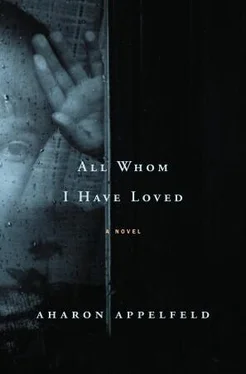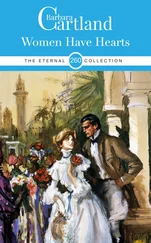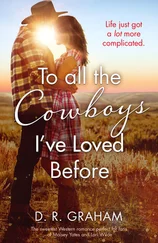In the afternoon, it rained. I had hoped that when the rain stopped I could stand on the riverbank, but it rained harder and I got drenched. I went inside, stood next to the window, and saw battalions of clouds racing through the skies and lashing their rain down on the black waters of the Prut. It was a struggle between heaven and earth, and it was hard to understand what it was about. So I sat and observed. And the longer I sat, the more I saw everything darkening; it was clear to me that Halina would not visit me here. My prayers at night returned empty. I opened the door and went outside. The rain and the wind whipped my face, and I felt a pressure in my chest. “God, let me see Halina!” I called out.
“She's in the chapel” came the answer. “If you come to Storozynetz, you'll be able to see her. Many people come to see her.”
Father returns when it's dark. I am so happy that I forget my woes. Father is also happy. When Father's happy his forehead gets broader and the lines on it rise.
Father gets up to make a pot of potatoes for dinner. He buys provisions from our landlord. The landlord brings the provisions and hastens to extol their quality and freshness. Father tries to make this conversation as brief as possible, but the landlord goes on and on. He talks about the rains and crop yields, and the flooding that has uprooted an entire orchard. Father pays him and promises that he'll come and see the new plot of land he's bought. The landlord leaves, and we sit at the table to eat our meal: baked potatoes, cheese, and yogurt.
Father doesn't ask, “How was it?” or “What did you do?” He eats and then serves up more for me and for himself. It appears as though this is his only full meal of the day. To break the silence, I tell him how I sat on the riverbank and gazed at the water. I would have really liked him to ask me about Storozynetz and about Halina, but he does not ask, as if he has no curiosity. And yet his presence does not weigh heavily on me. I love to have him close to me, so sturdy, and I think that one day I'll be like him.
When it stops raining, we go into town. Once our walks were less leisurely; now we stroll about the alleyways and walk up the main streets. The downtown area is crowded at night, with the stores and cafés open. At the café, Father knows many people, and they greet him cheerfully. In the street, too, he meets acquaintances. Sometimes it seems to me that the entire city likes him, and I'm proud of him.
It's not always like that. Once, a short, stocky man approached us, and I saw that Father became filled with anger. The man was an art critic, as it turned out, one of Father's enemies. Although I knew that he doesn't usually beat up people, I was still afraid. But this time Father surprised me and called out, “You scum! I hope the worms will eat you!” The man must have heard the curse; he began to run toward the gate of a house and then disappeared inside. Father's fury abated and a cold smile spread over his face.
Our walks usually wind up at the tavern. Father downs a couple of drinks, jokes with the barmaid, asks after his friends, and then we return home. I fall asleep on the tram, and Father carries me home in his arms. When I wake up in the morning, I feel as though I'm still sitting in the café.
The rains do not cease, and most of the day I sit by the window and gaze at the Prut flowing by. The river is black, and its waters surge and break over the banks with a deafening noise. Sometimes the landlord comes in and asks how I'm doing. Once, he asked me if I went to synagogue. I was taken aback by his question, and I told him the truth. “A person should go to pray at least once a week so that he'll remember that there's a God in the world,” he said. “The new Jews never go to see the face of God in the synagogue as they're commanded. The café is their temple. God has been showing restraint, but not for long. When the time comes, He'll punish them.” His face was red, and he spoke in a voice that shocked me.
“I'll go to the synagogue,” I said, very frightened.
“Every Sabbath, like your forefathers used to go. You promise?”
“I'll try.”
“That's not enough.”
“I promise.”
“Say ‘I promise and I will keep to it,’ ” he said, and a broad smile spread over his ruddy face.
At this time of the year the landlord does not work in the fields, only in the cowshed and the chicken coop. But like me, he sits at the window for hours, gazing at the River Prut. On Sundays he puts on a suit and goes to church. He leaves quietly, circumspectly. But when he comes back from church in the afternoon, his face is red and he's singing hymns.
Once I heard him talking to his neighbor, a peasant like himself, and this is what he said: “People have forgotten that there's a God in the world, and they think that everything's up for grabs. There is order and a purpose in the world. Whoever does not see this is blind or dumb — but how can I talk? Even my own sons have gone astray. If a man does not respect his father, he ends up not respecting our Father in heaven. His own father does not have it within his power to punish him, but God is wise and mighty, and He'll bring him to a reckoning.”
When Father returned home, I told him about the land-lord's visit. Father laughed and said, “Don't take any notice of him. In the winter he's drunk and talks only about God. But he's a good man.”
“Is there a God in the sky?” I could not contain myself.
“There is, apparently,” said Father, and chuckled, as if someone had discovered his weakness.
Then he reconsidered and said, “Why did you ask?”
I told him about Halina and how she rose to heaven. His forehead creased all at once, and he said, “The Ruthenians still have a simple faith, and we should learn from them.”
It wasn't raining, so Father decided that in the evening we would go to the church refectory and celebrate, and so we did. I loved the city streets at night after the rain. Nights such as those become absorbed deep inside you, and you remember them for a long time. Once, on a night after it had rained, I went with Father to Herrengasse, where he met an old friend. They stood talking, and before they parted, the man said, “I don't know what to do; I feel lost.” The man and the words that had come out of his mouth seemed to me so inseparable, as if they were one, that now, whenever it stops raining and I'm in the street, I see that man and hear his voice.
The refectory was full of heavy wooden tables and somewhat resembled a tavern, except that here people drank only lemonade. There were just a few drunks, and they didn't disturb anyone. Father got two pieces of corn pie at the counter, a jug of cream, and two glasses of lemonade. We immediately found seats by the window.
The hall was completely filled, and it was hard to speak. If you looked up, you saw that the walls and the ceiling were covered with pictures of saints. A large metal light fixture hung from the ceiling. The place didn't look like a church, and yet it bore some resemblance. The corn pie was tasty, and Father hurried to fetch more. All the while, people came up to him, asking how he was. I noticed that here, too, everyone was slapping him on the shoulder and calling him by his first name. Father had had his hair cut a few days earlier, and he looked like a soldier just out of the army.
After we finished the meal, the people buried their faces in their hands and started to sing. It was a restrained but powerful singing that seemed as if it would flow that way for hours, except suddenly the door at the back opened and a very thin, very elderly man came in and those singing fell silent.
As the old man sat on a chair, all eyes were on him.
Читать дальше












